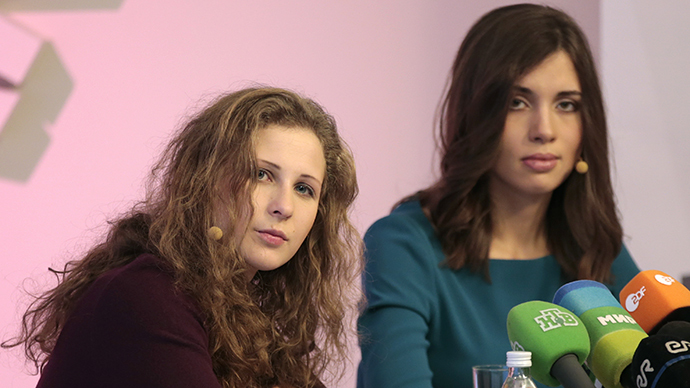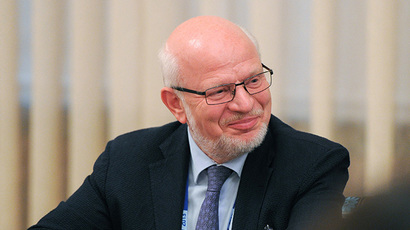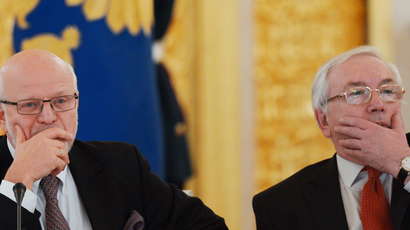HR official suggests ethics code barring Pussy Riot from activism

A member of the Presidential Human Rights Council has suggested a code of behavior and ethics for activists. The official says the move would sift out attention seekers with political ambitions, such as the members of the band Pussy Riot.
Vladimir Osechkin, who also heads the State Duma workgroup for public control over prisons and the protection of inmates’ rights told reporters that he had suggested the official bodies hold a joint session in February and discuss the adoption of what he called “a rights activist ethics code.”
In an interview with the Izvestia daily Osechkin said that lately a lot of people started to ‘parasitize’ on human rights. These people use the status of rights campaigners for self-promotion and do not protect anyone’s interests but their own, he noted. Such behavior leads to a situation where law enforcers and other agencies become prejudiced against the human rights community as a whole, and all rights campaigners face difficulties in their work.
“We should not be afraid to openly talk about problems, including the violations committed by representatives of policing agencies, but we should not politicize the process,” Osechkin told the newspaper. There must be a single choice option – people should work either in the political arena or in the area of Human Rights, he emphasized.
Osechkin gave several examples of the people who, in his view were discrediting the status of the rights advocates and were pursuing own goals. These included the former Lower House MP Gennadiy Gudkov, who promised to set up his own HR group when parliament voted to oust him, but quickly abandoned the idea.
Another example was Moscow artist Ilya Farber – the man who was sentenced to a lengthy prison term for bribery, but had the sentence reviewed after a public outcry over the irregularities uncovered in the process. Farber was released under the recent amnesty and pledged to devote himself to human rights activities, but instead he immediately sparked a scandal by ‘symbolically’ walking over stars from officers’ shoulder patches (the artist explained that this meant his triumph over unjust prosecutors).
The third and probably most well known example of attention seekers discrediting rights activists were the members of the Pussy Riot punk band. Osechkin said that the girls who now intended to work on defending the interests of inmates as well as a broader rights agenda became known through an act that insulted the feelings of Orthodox Christians, and even before that staged obscene acts in public places and posted their photos on the internet.
In an interview with the Moscovsky Komsomolets newspaper Osechkin claimed that he had received a lot of letters from people across Russia expressing their concern over the plans of Farber and the Pussy Riot members to devote themselves to rights activism.
Some legislators and members of Presidential Rights Council have supported the idea. MP Mikhail Bryachak (Fair Russia) told reporters that often rights advocates were caring only about their own well-being and not about the declared objectives. MP Vadim Dengin (LDPR) said that the people whose reputation was stained by immoral actions and who had insulted other people with their actions could not call themselves rights advocates. “If such people tell us what we should do they would lead the nation into a disaster,” the parliamentarian added.
Andrey Yurov of the presidential council said that it would be helpful to introduce some rules, but they could only be recommendations. “The UN declaration on protection of human rights campaigners reads that any person has the right to protect his own or others’ rights. Therefore we cannot impose any bans here,” he stated.
At the same time, the head of the council, Mikhail Fedotov, harshly opposed the initiative saying that he considered both the ethics code and its discussion senseless. “Ethics cannot be born from orders or directives, from someone’s decision or initiative. Professional ethics is born from experience and develops by self-regulation,” the official stated.














